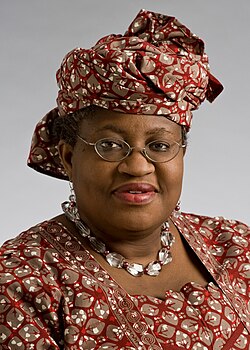World Trade Organisation (WTO) director-general Ngozi Okonjo-Iweala has called for urgent reform of the global trading system, saying it must become more flexible and responsive to today’s complex realities.
In an interview with Arise TV on the sidelines of the Future Investment Initiative in Riyadh, Saudi Arabia, Okonjo-Iweala acknowledged U.S. criticism that the WTO’s consensus-based system has become too rigid.
“The US feels the WTO is not flexible enough — it’s too inflexible,” she said. “Consensus gives the smallest member the same power as the largest, but when it becomes unanimity, it becomes a veto power.”
She proposed that “willing coalitions” of members should be able to create new rules and agreements without being held back by unanimity.
Okonjo-Iweala also warned that the global economy has grown “over-dependent” on a few major players. “The trading system was built for interdependence, not over-dependence,” she said, urging countries to diversify and build new trade partnerships.
The WTO chief argued that Africa is well positioned to fill emerging global supply gaps, citing its abundance of critical minerals and growing workforce, projected to represent one in five of the world’s working-age population by 2050.
She said the WTO system, though under strain, has proved resilient, with 72 per cent of world trade still conducted under WTO terms despite recent tariffs. “It’s not that easy to dismantle something built block by block over 80 years,” she said.
Okonjo-Iweala added that global trade is rebounding, with the WTO revising its 2024 growth forecast from 0.9 per cent to 2.4 per cent, driven largely by stockpiling ahead of tariffs and booming AI-related trade, which now accounts for 42 per cent of growth.
On subsidies, she defined “good” ones as those that support innovation, startups, and green technologies, while warning against “wasteful subsidies” to inefficient state enterprises.
Turning to Nigeria, she said the government’s stabilisation efforts are beginning to yield results but stressed that growth must now take centre stage.
“The only way people can feel the economy is working for them is when it grows and that growth spreads to those at the bottom,” she said.
She urged the government to prioritise support for SMEs, strengthen the Bank of Industry, and invest in agriculture and creative industries, noting that Nigeria remains overly dependent on oil and gas.





